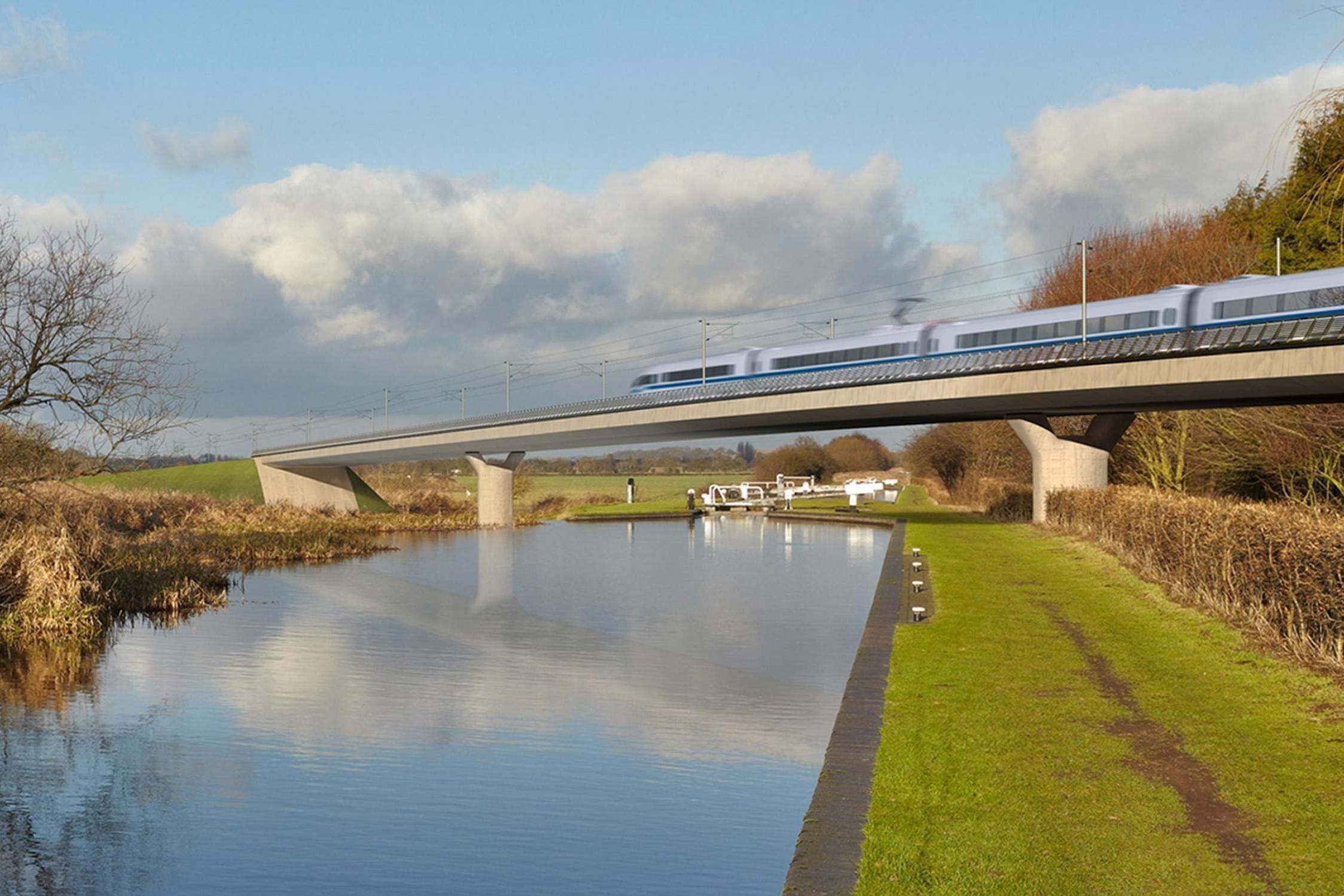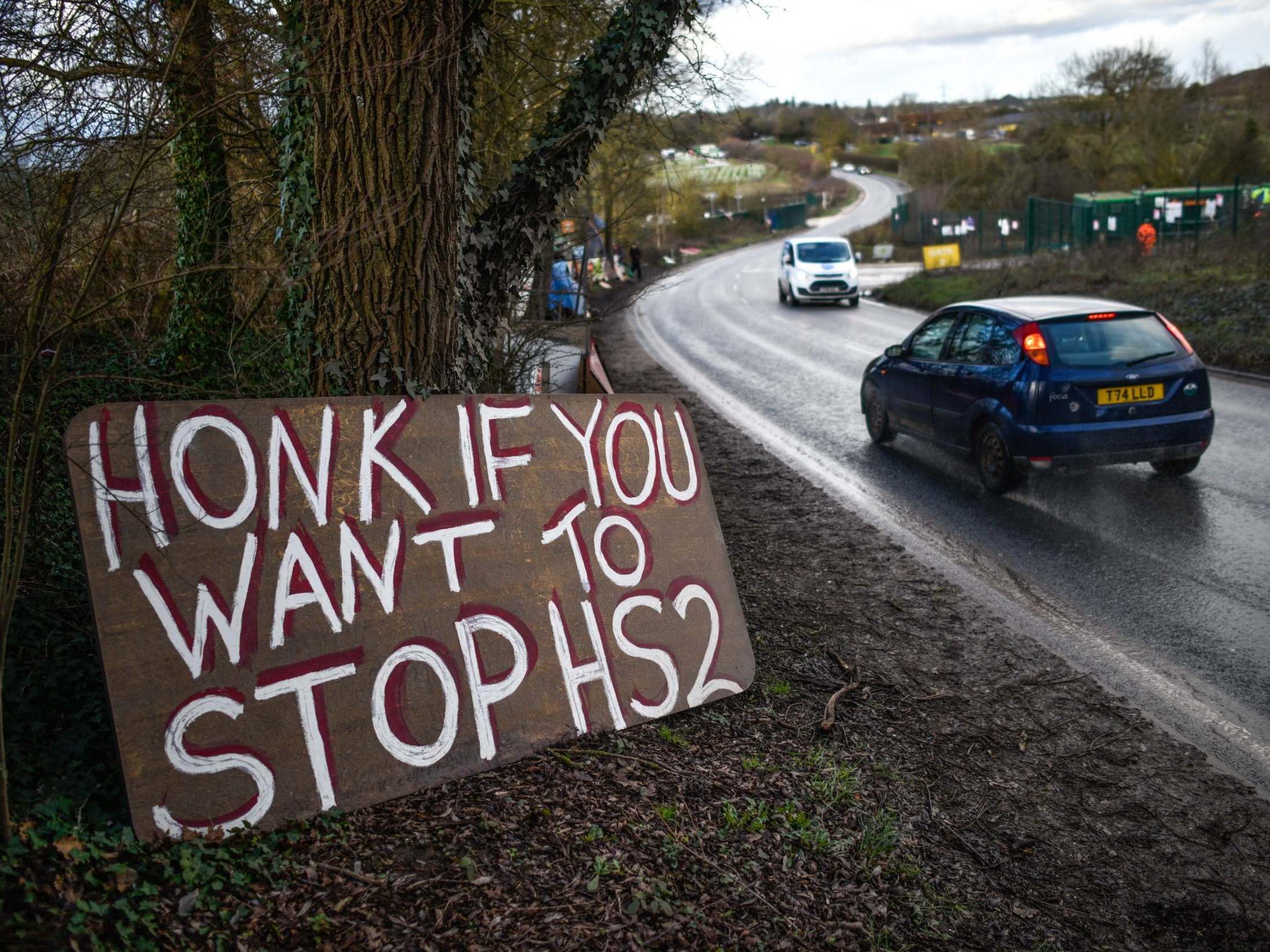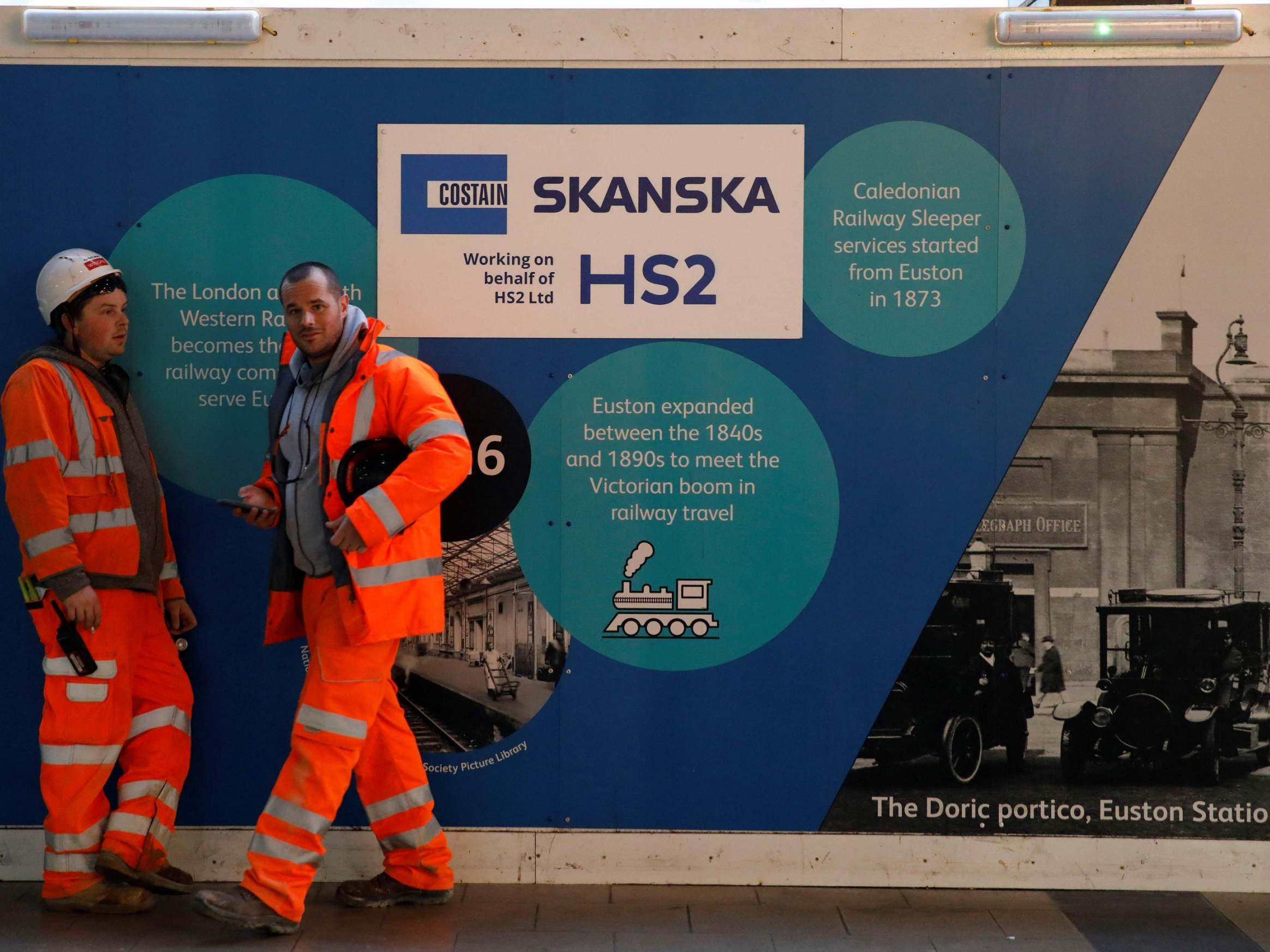How many spin agencies does it take to sell a high-speed railway? The answer is 17
Relative to the cost of HS2 – currently £106bn – the advisers are cheap. However, Chris Blackhurst can’t help but imagine how much hot air is in the room every time they meet


It could be a joke if it was not so unfunny. How many firms of communications advisers does it take to sell a much-needed high-speed railway, connecting the nation’s capital with major cities and linking them together, providing much-reduced travel times and extra capacity, and enabling at long last a move towards economic and social equality?
Answer: 17. For the record, here are the spin agencies employed by HS2, from a parliamentary reply to a question: “JBP Associates, Blue Rubicon, MHP Communications, Brand and Deliver, Brandnew, M-is, Precedent Communications, Crown Business Communications, PRgloo, Booz & Company, SKV Communications, Emergn, Stairway Communications, Gorkana, Hopscotch Consulting, Weber Shandwick, Westbourne Communications.”
Seventeen! Imagine, if there was a meeting to discuss the approach most likely to win over sceptics, what information would best convince those in the south and north that the project was required, and would prove money well-spent, that the end result would be transformative for the UK. If every firm sent two staff members along that would be 34. Assuming a team of six from the client side and you reach a total of 40. That’s one enormous table if that’s how they’re arranged, or several rows of seat. Certainly, it’s one big room. It’s also a huge amount of hot air.
Relative to the cost of HS2 – currently estimated to reach £106bn by the time it’s finished, and given that might not be until 2036, a decade later than planned so there’s plenty of scope for the final bill to climb still further – the comms advisers are cheap. But that is not the point.
Not only is HS2 dogged with rows over delays and soaring costs, but the case for its construction has never been properly made. Life would be a lot easier for all those involved in promoting the 330-mile line linking London, Birmingham, Manchester and Leeds if everyone was aware of the benefits it will bring. Somehow, though, that message has got lost. Looking at that list of advisers, and they may well have been added to since it was produced, you can only conclude that could be a major factor.
Think again, of a document being sent round for approval, with each person cc-ed feeling they must chip in and earn their fee. Perhaps it’s how what ought to be a simple proposition becomes something altogether more nebulous and unconvincing.
What began as a proposal by the Department for Transport in 2009 has careered, pardon the pun, off the rails. The advent of HS2 should be a landmark moment, when at least the physical north-south divide will be consigned to the past. This is a service capable of transporting up to 26,000 people per hour. In all, they reckon, 85 million passengers will use the route annually. As climate-crisis worries loom, HS2 promises to carry more passengers per hour than two motorways.

As someone who regularly journeys from London to the northwest, I am used to standing at Euston gazing forlornly at the departure board, looking for a train with the right connections, and once getting on board, finding it full, with folk standing in the aisles.
As someone who regularly journeys from London to the northwest, I am used to standing at Euston gazing forlornly at the departure board, looking for a train with the right connections, and once getting on board, finding it full, with folk standing in the aisles
HS2 will see 15 trains per hour travelling to and from Euston on their own, dedicated high-speed line. They will all be fast and direct, so they won’t have to slow down for stopping, commuter trains. The freight trains, too, will be obliged to use the existing West Coast Main Line. But the knock-on effect, as HS2 hurtles past on its own rails, will be to free up capacity on the current line, which it must be said has improved dramatically over the last 30 years. So, HS2 means sweeping positive gains across the board: a new, express route; and a massive boost to the present service.
This is before we get to the cross-country, northern improvement, supplying a quick alternative between the major cities to today’s staggering, stultifying railway and clogged highways. Put like this it really is a no-brainer. To be honest, the cost begins to become incidental. This is the outcome; this is what we have to pay. If we want to bring the country into the 21st century, albeit 36 years in, this is what it will take.

I admit, hitherto, to being unpersuaded. But the more I study it, the more I’m convinced it has to happen. From London, the second city of Birmingham and the west midlands conurbation will be commutable. London’s housing crisis, that sees essential, public sector workers priced out of the market, could be eased. The north will not seem so far away; critically, it will begin to feel less like another country. Within the north itself, there will be greater movement of people, seizing opportunities to live and work in different locations. Britain will be more joined up.
Joining up Britain. Connecting our cities. Connecting our communities. Take your pick. Each is just three words that explain why HS2 merits every penny, why it is so vital. Instead of these messages, though, or something similar, we have fog and confusion. How many consultancies does it take to come up with three words? Not 17, that is for sure.
Join our commenting forum
Join thought-provoking conversations, follow other Independent readers and see their replies
Comments